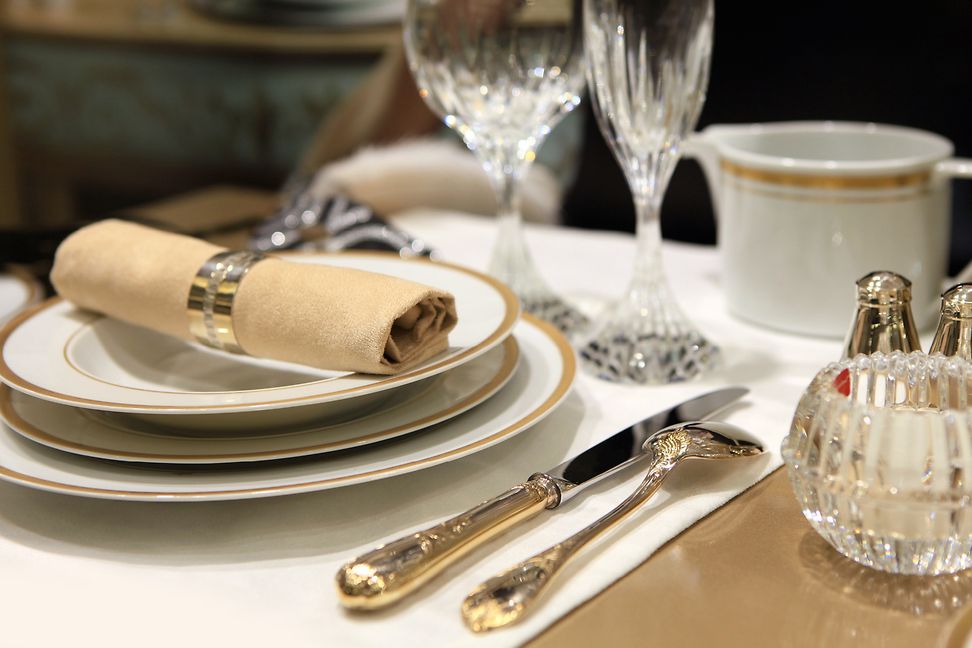在此处更改您的语言和 LGT 位置。
私人客戶的數碼平台
登錄 LGT SmartBanking
金融中介機構的數碼平台
登錄 LGT SmartBanking Pro
解答常見問題 (FAQ)
LGT SmartBanking 幫助
解答常見問題 (FAQ)
LGT SmartBanking Pro 幫助
Who holds the door open for whom? Who orders in the restaurant? And do rules of decency and good manners even matter nowadays?

Etiquette is constantly evolving. It changes with the spirit of the times, and is shaped by changes in society, technology and the working environment. So which rules still apply today?
Just as companies use the "kill a stupid rule" approach to challenge rules and processes, society too over time rids itself of rules and processes associated with etiquette. The only difference is that companies introduce new rules deliberately and purposefully. In society, on the other hand, these changes take place gradually and not according to a specific plan. But the critical questions are the same: What are we still doing in a certain way just because that’s the way it’s always been done? Which outdated norms and rules should we stop adhering to? And what are the unwritten rules?
Etiquette changes when the majority of a community’s members considers such changes to be pleasant, respectful, sensible and polite.

However, the more relaxed approach and informal behaviour that has emerged in recent years – ie more casual dress codes, greater authenticity, Zoom calls – does not mean that respect and good manners should be eschewed.
Today’s world makes it increasingly difficult to be friendly, respectful, tolerant and considerate. There are more humans on the planet than ever before, and yet we live increasingly isolated lives and forget to respect the personal boundaries of others. Anonymity makes it much easier to behave in a self-centred way.

What exactly is considered polite varies depending on the prevailing zeitgeist and culture. At its core, however, politeness is always and universally about having empathy for others. For most people, there are three main reasons for having and adhering to rules and norms around politeness. These are:
The days when a man entered a room before a woman to make sure the location was safe are over. In a restaurant today, it is the person who extended the invitation to go out who holds the door open and leads the way to the table. This applies no matter whom you are with – a man or a woman, a customer, a boss or an uncle. If, however, guests are led to a table by restaurant staff, the host follows behind the guests.
Left-handed people can breathe a sigh of relief. They no longer have to eat as if they were right-handed, and are allowed to hold their cutlery “the other way round”. They may also hold their glass in their left hand. However, every item they pick up should be put down on the same side they found it on initially in order to avoid complicating things for servers, as the latter pour beverages and clear the table from the right.
Today, guests are no longer expected to leave a small portion in their dish for the sake of good manners, indicating that the serving was abundant. In fact, finishing everything on one’s plate is appropriate and recommended, as it helps avoid food waste.

In the past, things were clear: the man opened the car door for the lady, pulled her chair out for her so she could sit down, stood up when she left the table and then again when she came back. The man would also order for her and pay the bill.
Men are still allowed to be old-school gentleman – but they should make sure to consider their surroundings and whose company they are in first. For one, diversity shapes the lifestyle of the modern age and thus also influences how we see gender roles. Secondly, many women don't even know how to confidently accept such gestures, because they rarely experience them today. Compare it to dancing: if both parties know the basic steps, a man who leads well can do all kinds of different moves and the woman will float elegantly with him across the (social) floor. But if only one of them knows what they are doing and the dance is no longer a well-known one, they will stumble their way through it. In the best case scenario, this ends with laughter. In the worst case, it could prove to be an embarrassing disaster.
In a business context, however, gentlemanly gestures are out of place and belong in the "kill a stupid rule" category. Women and men behave in the same way in today’s professional world, and there is no longer any difference in terms of how the different sexes are treated. And while it is people’s seniority and role that determines who takes the lead in work-related situations, everyone’s behaviour should be guided by respect and appreciation.

Hosts should help their guests choose their meal by making recommendations and telling them what they will be ordering for themselves. This gives the guests a point of reference in terms of the budget and the number of courses.
When it’s time to order, the host may, if desired, do so for their guests. Ordering the wine, however, is always the responsibility of the host.
As a general rule, a person’s manners (good or bad) should not be something that makes them stand out. And while being polite should be the norm, that does not always mean it is necessary to be formal. Being able to gauge the level of formality required in a wide range of situations can make all the difference in the world, so occasionally brushing up on any changes in etiquette is time well spent.